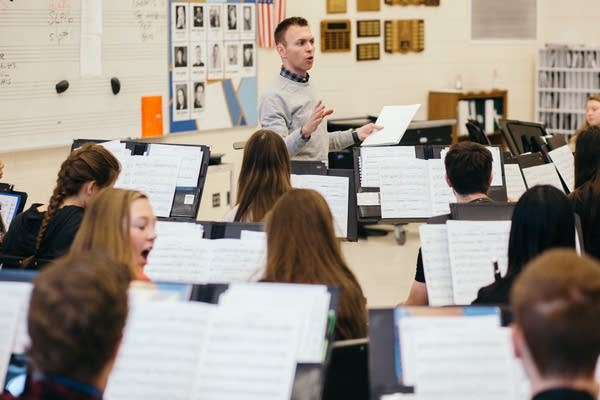Spring Lake Park High School band looks for diversity in its repertoire

Spring Lake Park High School band teacher Brian Lukkasson leads a discussion with his class about the perspectives of the composers they play, focusing on composers of color in the civil rights era, Dec. 20, 2016.
Evan Frost | MPR News
Go Deeper.
Create an account or log in to save stories.
Like this?
Thanks for liking this story! We have added it to a list of your favorite stories.


